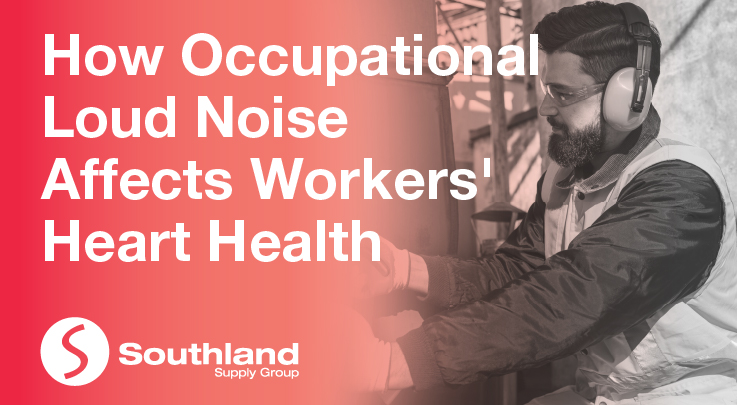How Occupational Loud Noise Affects Workers' Heart Health

Occupational loud noise is a common hazard that affects many workers, particularly those in the construction, transportation, and manufacturing industries. Overexposure to loud noise can result in hearing loss, tinnitus, and stress-related disorders. Recent studies have also shown that occupational loud noise can have a negative impact on workers' heart health.
Research has shown that exposure to occupational loud noise can increase the risk of cardiovascular disease (CVD) by up to 50%. The risk increases when workers do not wear the appropriate hearing protection equipment. CVD encompasses a range of disorders that impact the heart and blood vessels, including heart attacks, strokes, and peripheral artery disease.
Additionally, exposure to loud noise can elevate the production of stress hormones such as cortisol and adrenaline. This can lead to inflammation, blood vessel damage, and high blood pressure, which increase the likelihood of atherosclerosis. A condition where plaque accumulates in the arteries, narrowing them and increasing the chances of heart attacks and strokes.
Preventing the Negative Effects of Occupational Loud Noise on Workers' Health
To prevent the negative effects of occupational loud noise on workers' heart health, employers can take several measures. These include:
Conducting a noise assessment: The first step in preventing the negative effects of occupational noise is to identify the sources of it in the workplace and establish the levels of exposure. This can be done by conducting a noise assessment using sound level meters or dosimeters. The assessment should cover all areas of the workplace and identify any equipment or processes that generate excessive noise.
Implementing engineering controls: After identifying the sources of noise, employers should implement engineering controls to reduce noise levels. Examples of engineering controls include sound barriers, vibration dampeners, and acoustic enclosures. It is also good to consider upgrading equipment with noise-reducing features.
Provide hearing protection: In situations where it is not possible to eliminate or reduce noise levels, employers should provide hearing protection to employees. This can include earplugs, noise-cancelling earmuffs, or both. Hearing protection should be comfortable, fit properly, and be appropriate for the level of noise exposure. They offer a high level of protective communication solution that helps workers stay protected in noisy environments while enabling clear communication on their handheld devices.
Train employees: Employers must provide training to employees on the risks associated with occupational noise exposure and the measures in place to prevent adverse effects. Employees should also be trained in the correct use and maintenance of hearing protection like earplugs and earmuffs.
Monitor and enforce noise exposure limits: It is vital that employers regularly monitor noise exposure levels to ensure they are within safe limits. Where necessary, adjustments should be made to engineering controls or hearing protection to maintain safe levels of exposure. Employers should also enforce noise exposure limits and take disciplinary action against employees who violate safety procedures.
Encourage regular hearing checks: Employers should encourage employees to undergo regular hearing checks to identify any early signs of hearing loss. This can be done through on-site or off-site hearing testing.
By focusing on limiting this risk factor in the workplace, the risk of heart disease due to occupational loud noise among workers will be reduced, ultimately cutting down expenses on heart disease and other noise-related ailments.
In conclusion, occupational loud noise can have a negative impact on workers' heart health. Employers and workers should take steps to reduce exposure to loud noise and protect themselves from its harmful effects. By doing so, they can help prevent the development of cardiovascular disease and improve the overall health and well-being of workers.
Here at Southland, we offer a wide selection of hearing protection such as earplugs and earmuffs. These are designed to reduce noise exposure and the subsequent risk of hearing loss. We partner with reputable brands like 3M, ProChoice, Uvex, Honeywell and more to give you a wide selection of hearing protection equipment.
